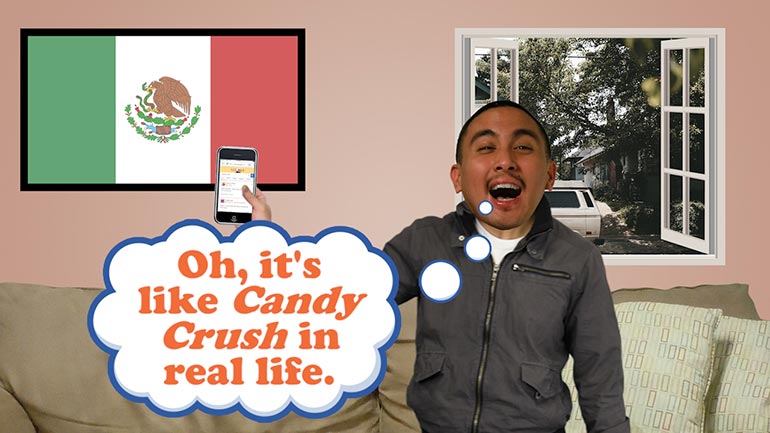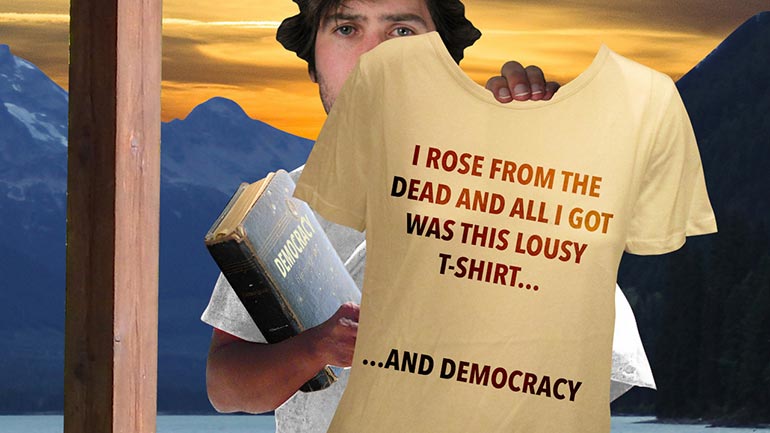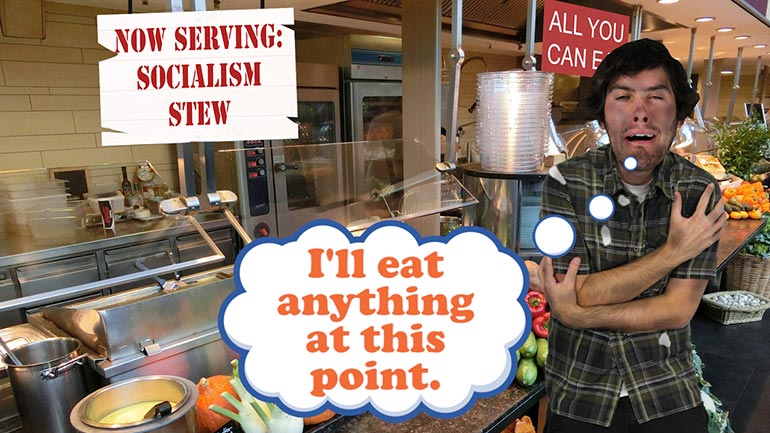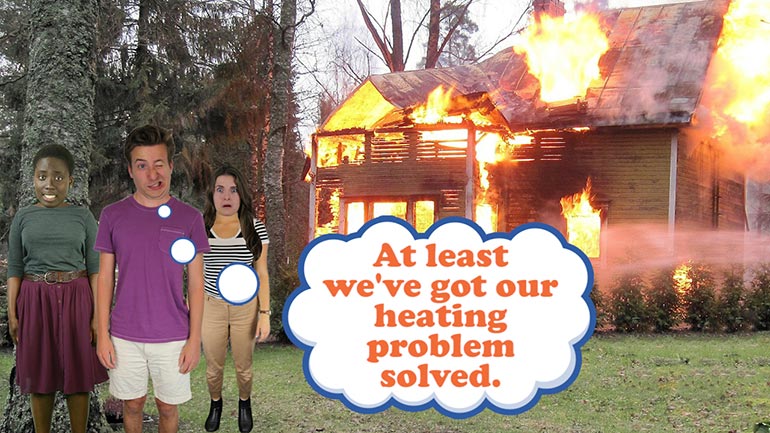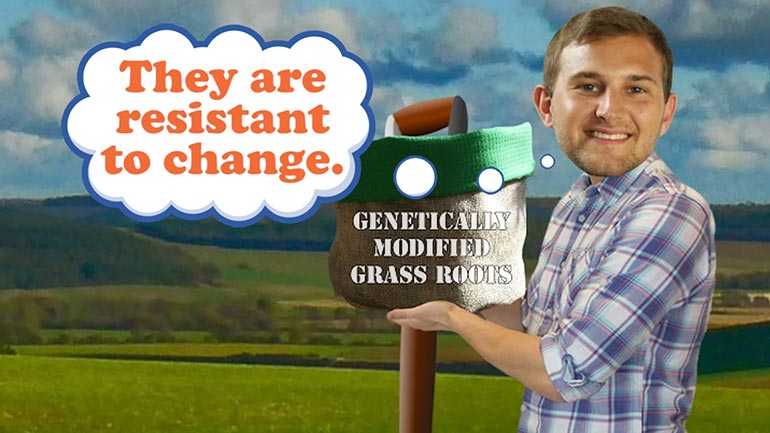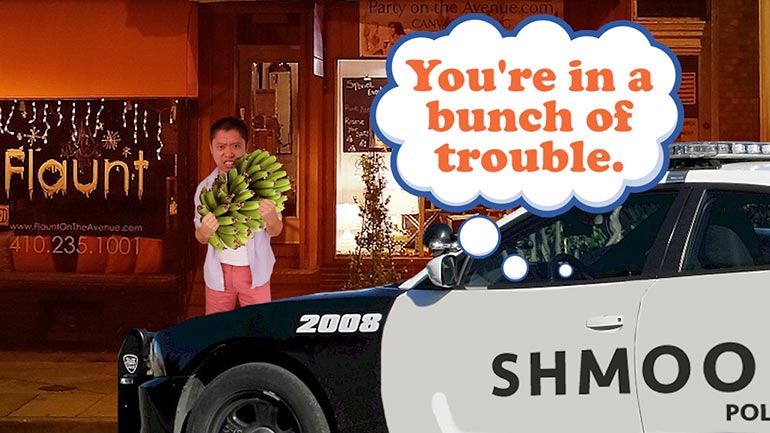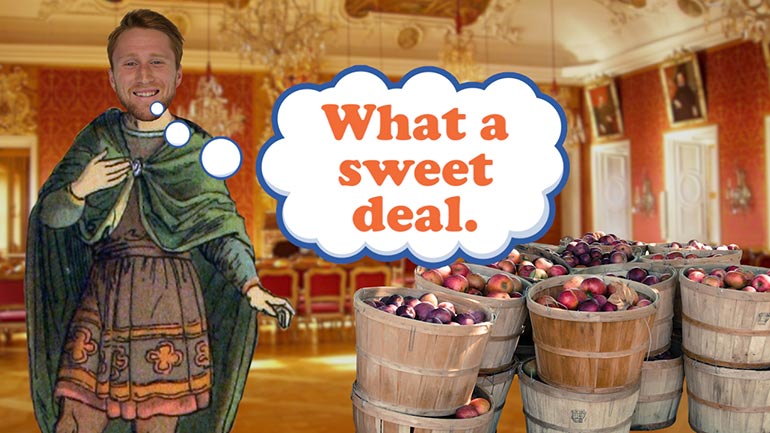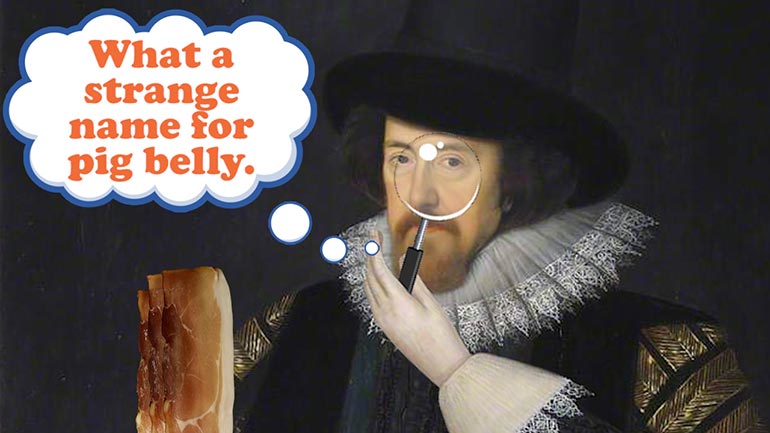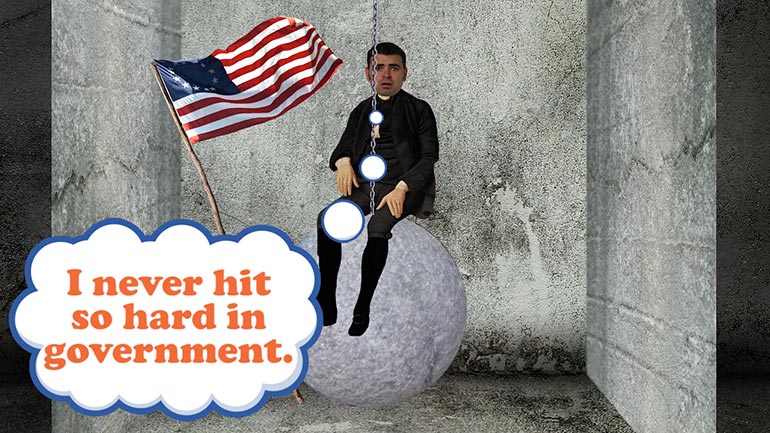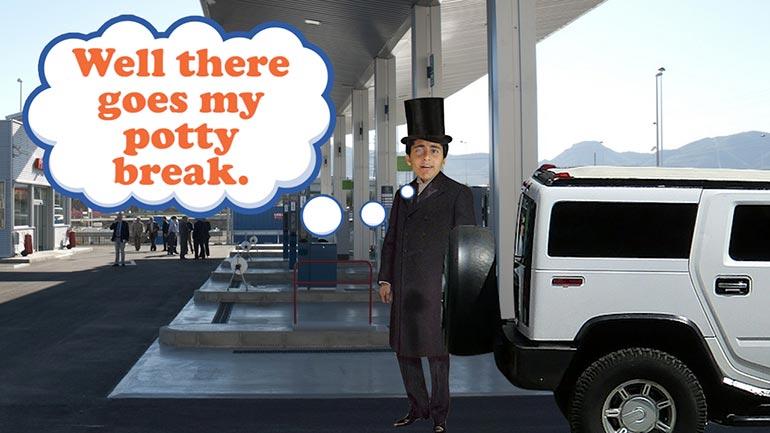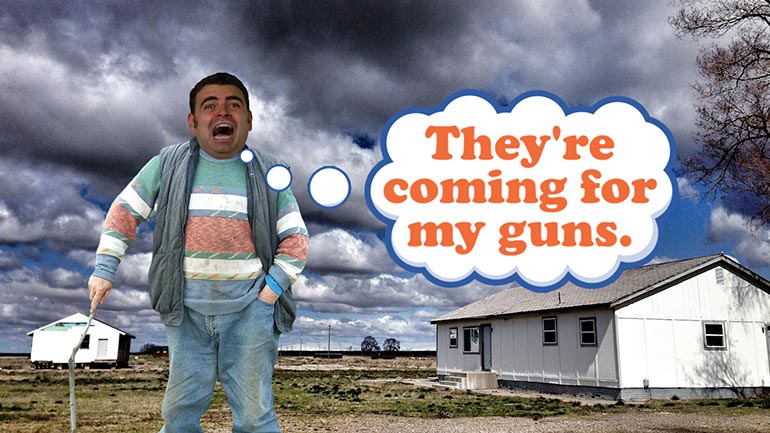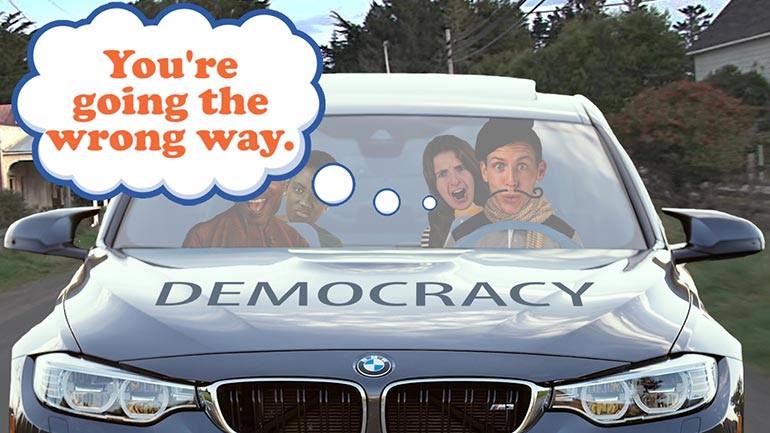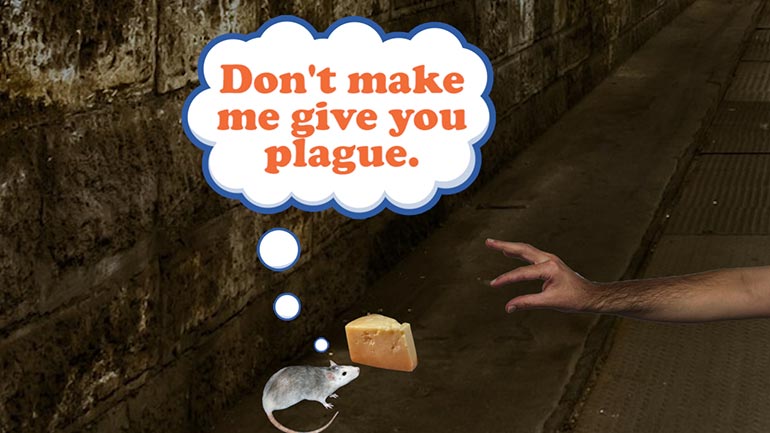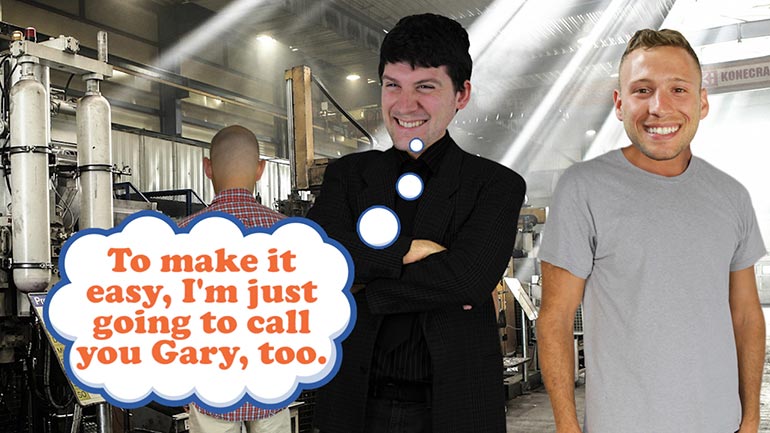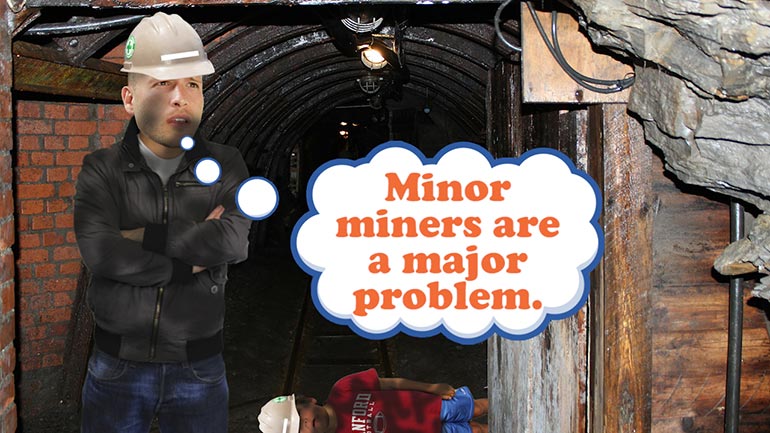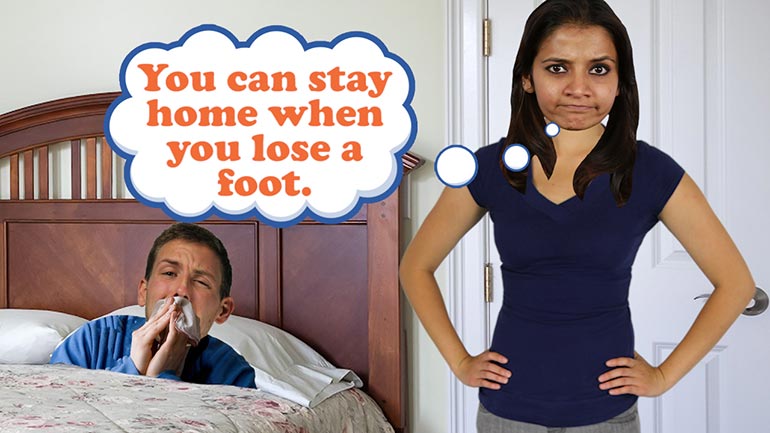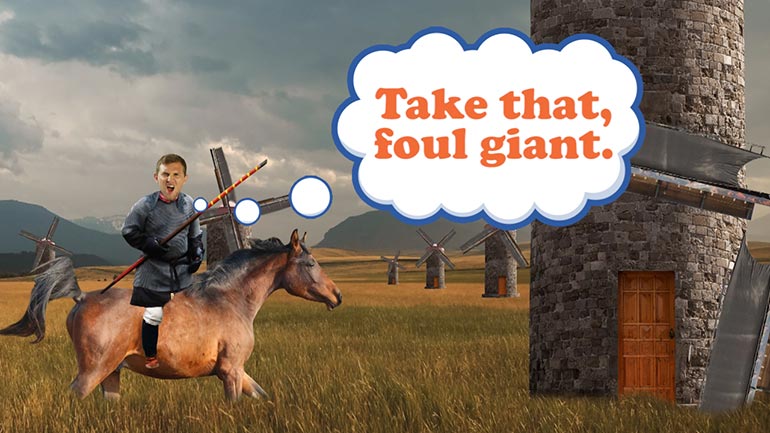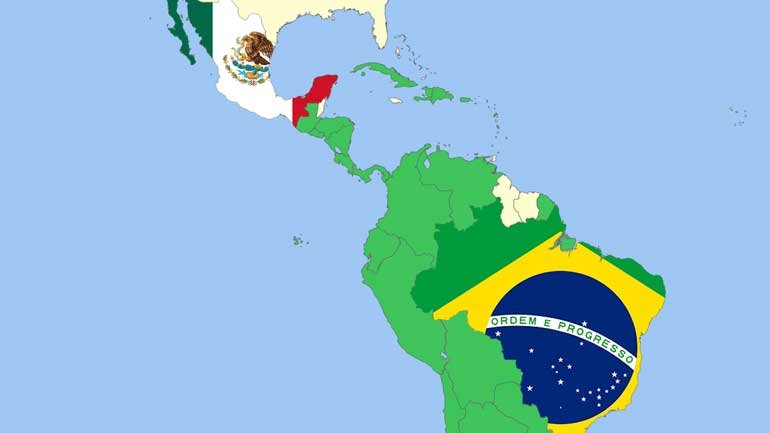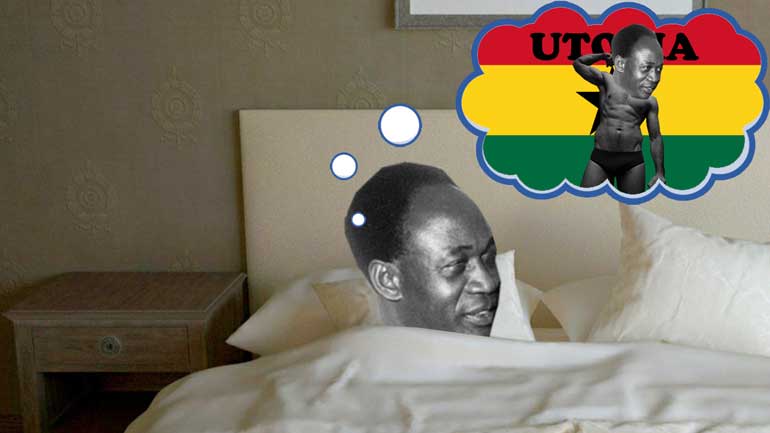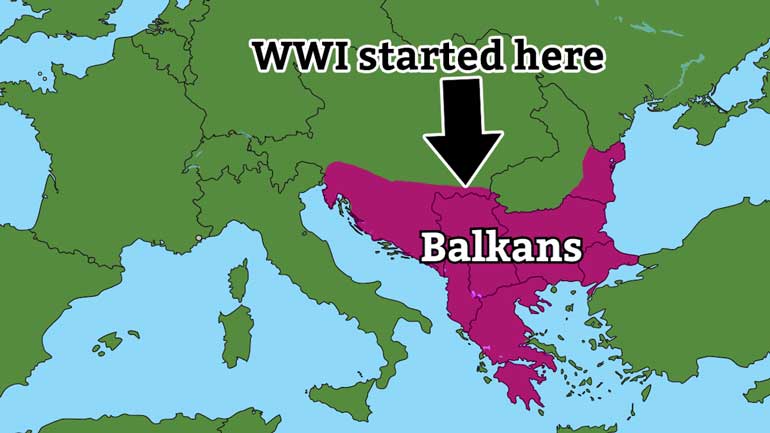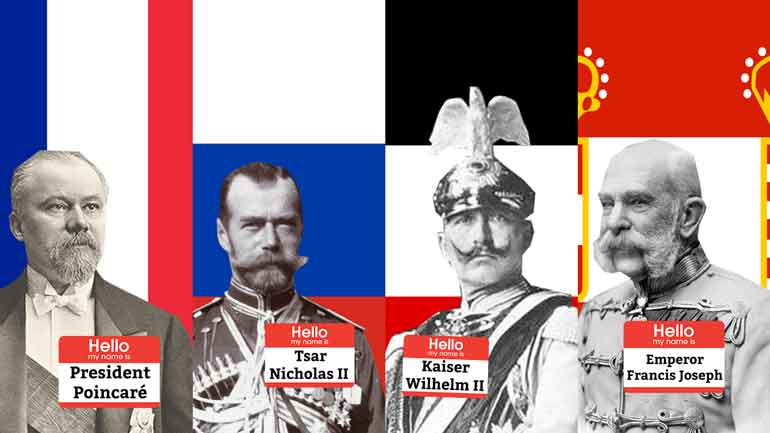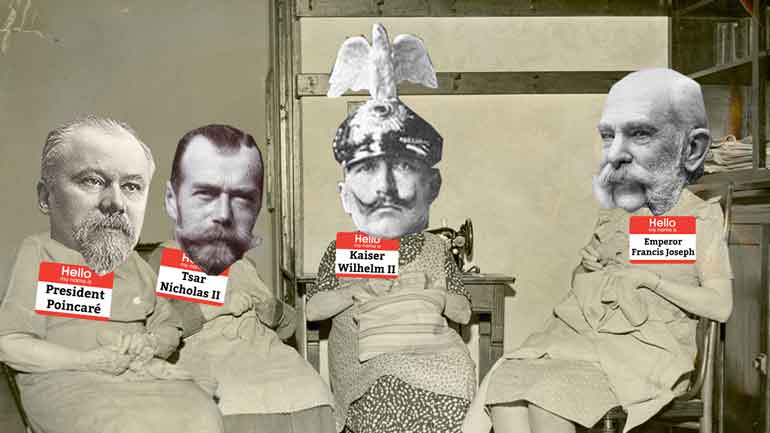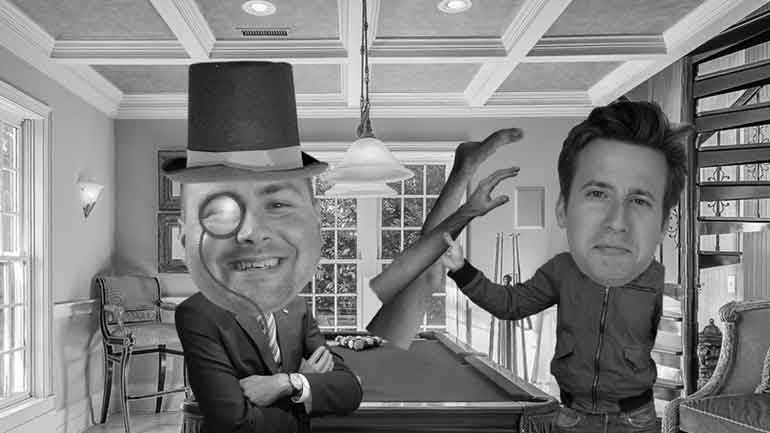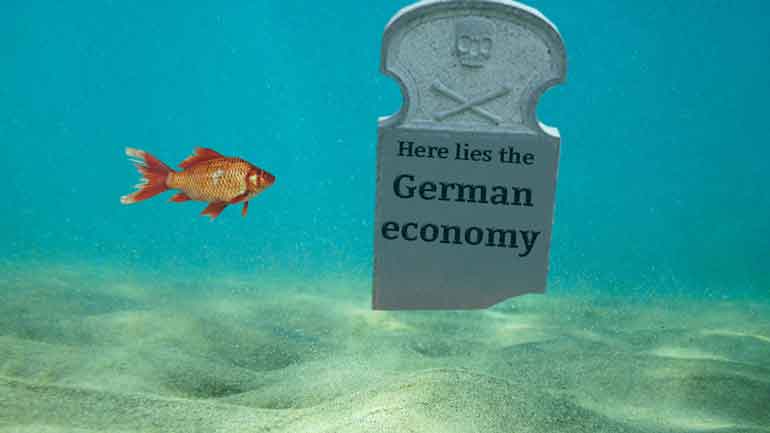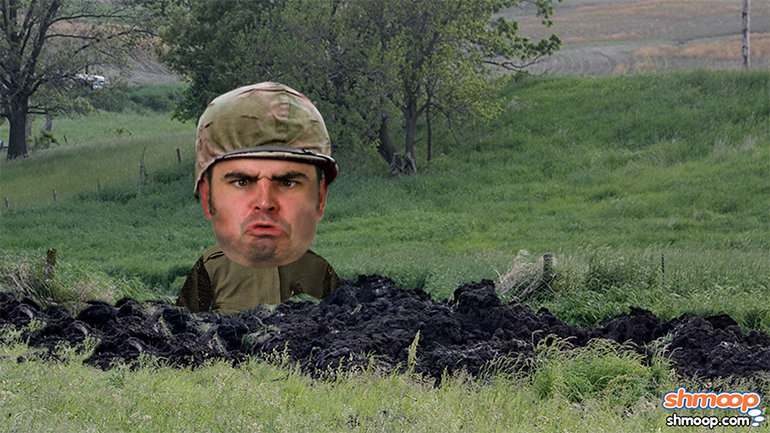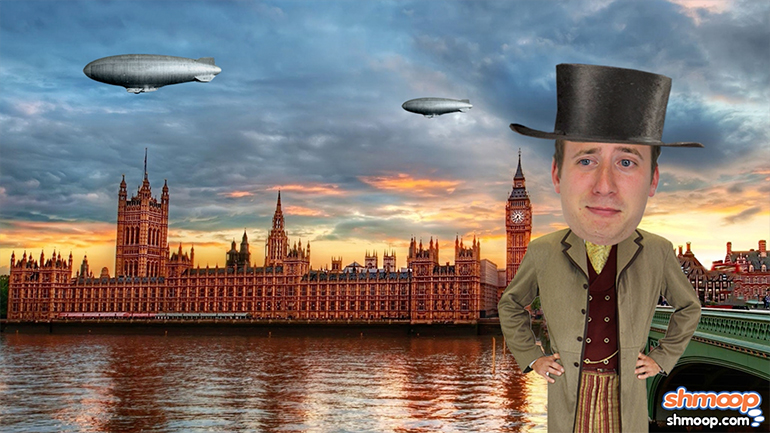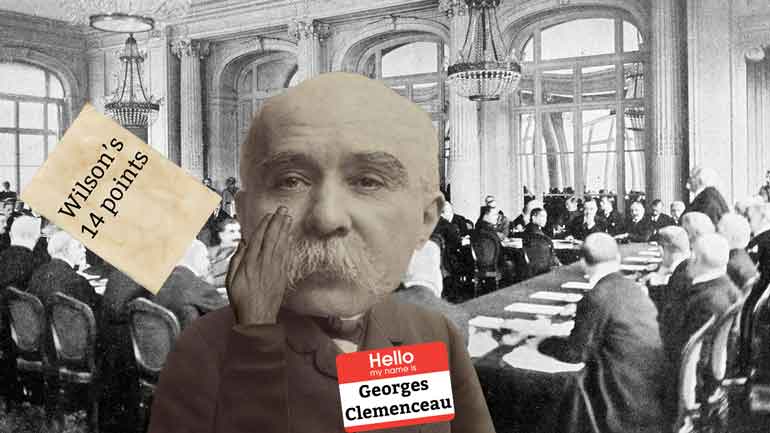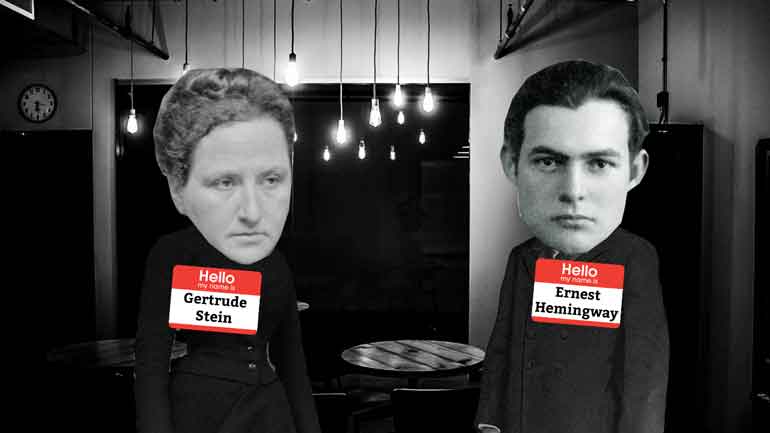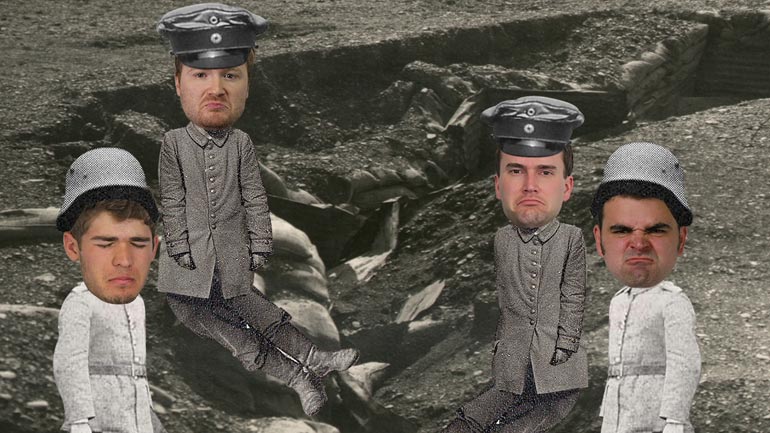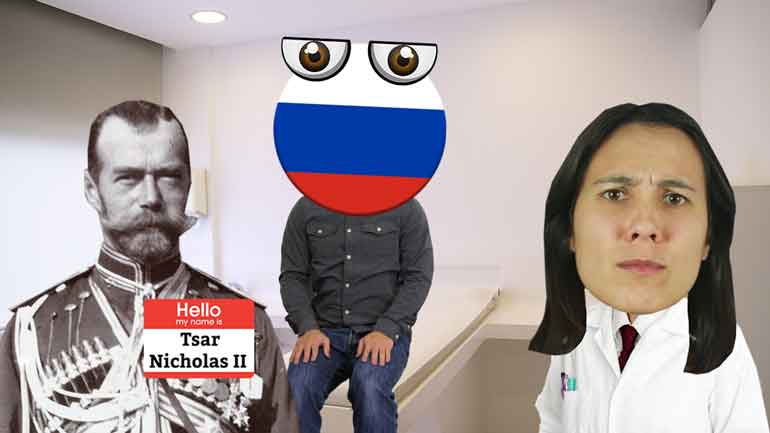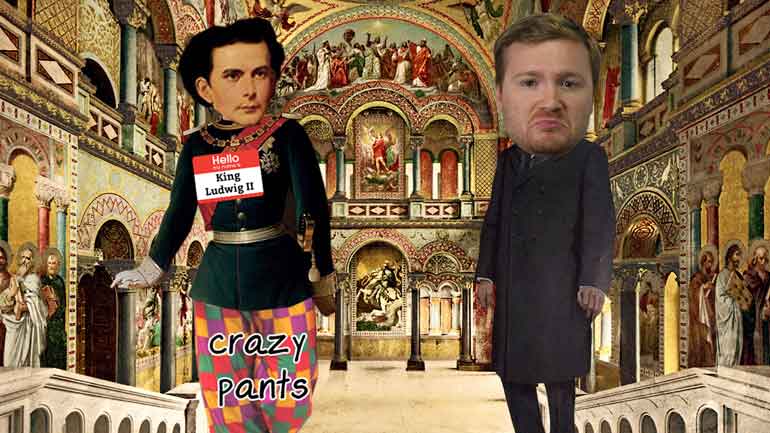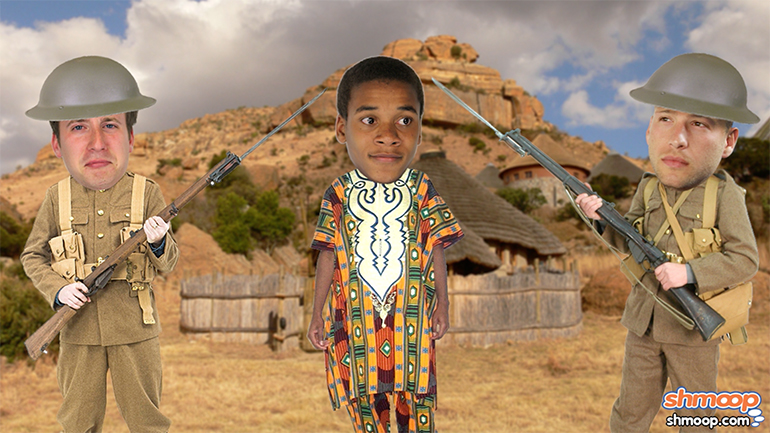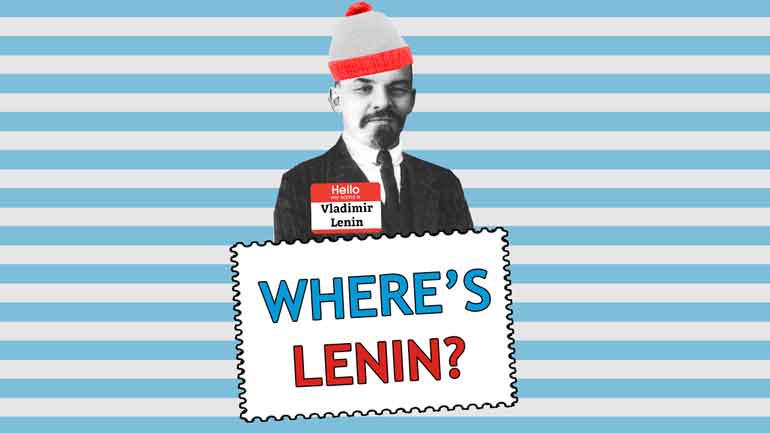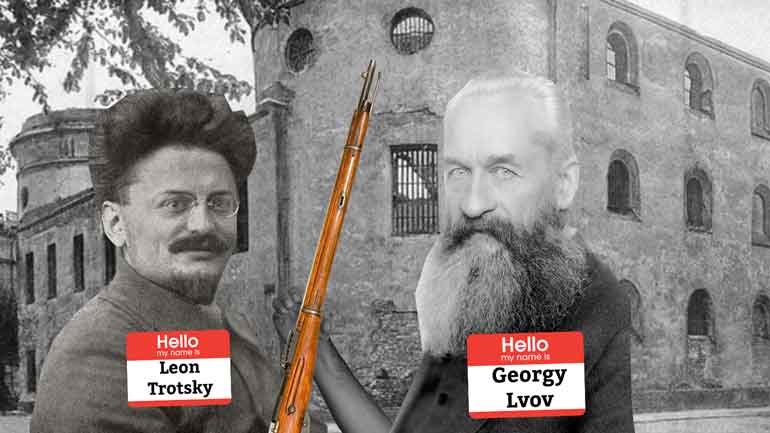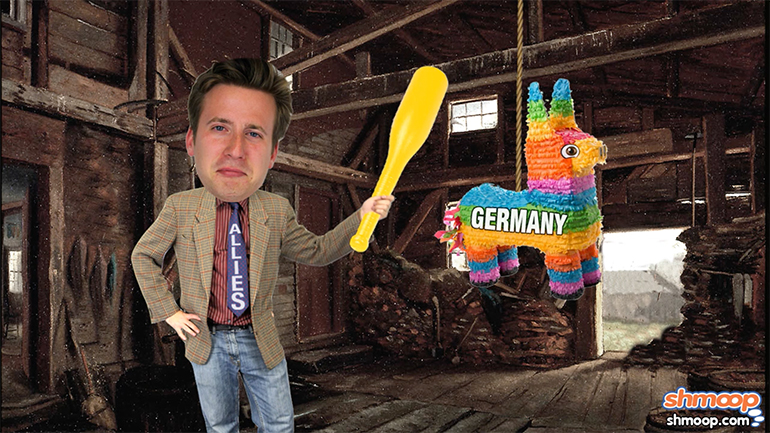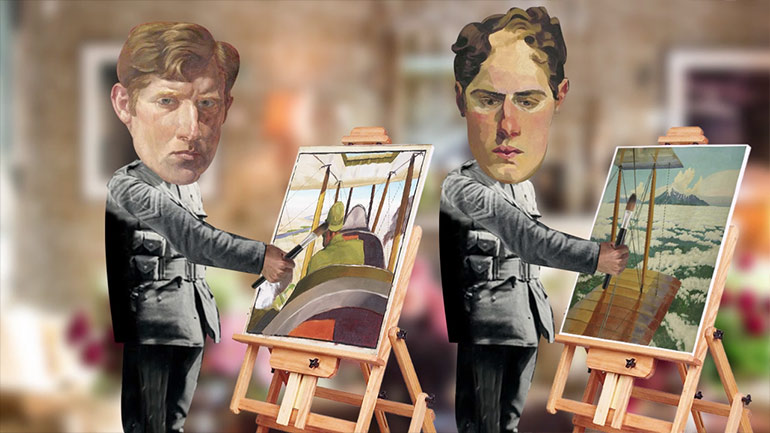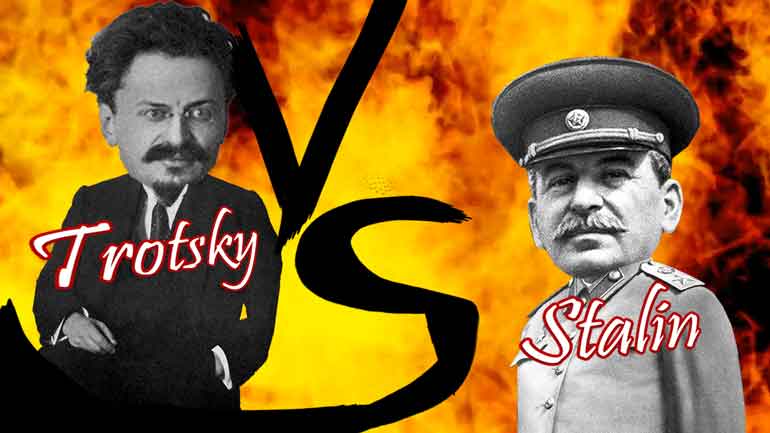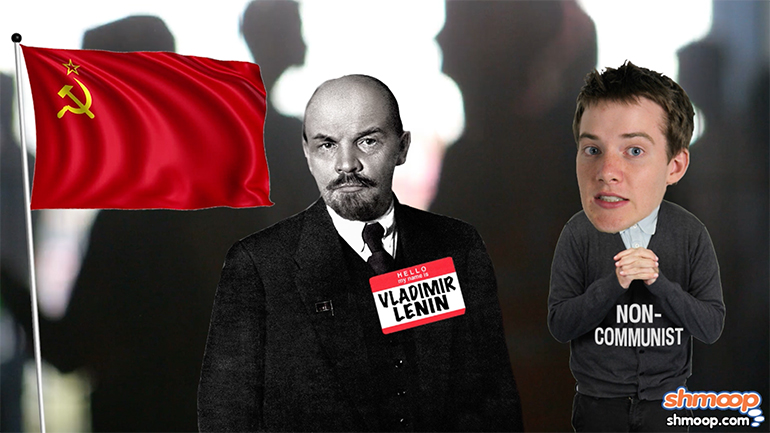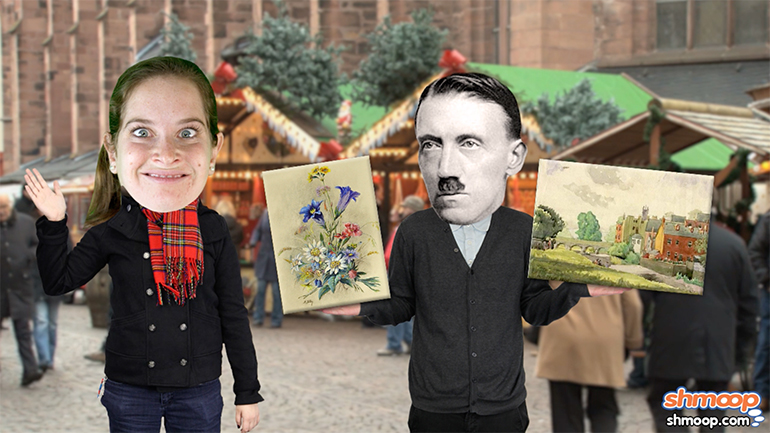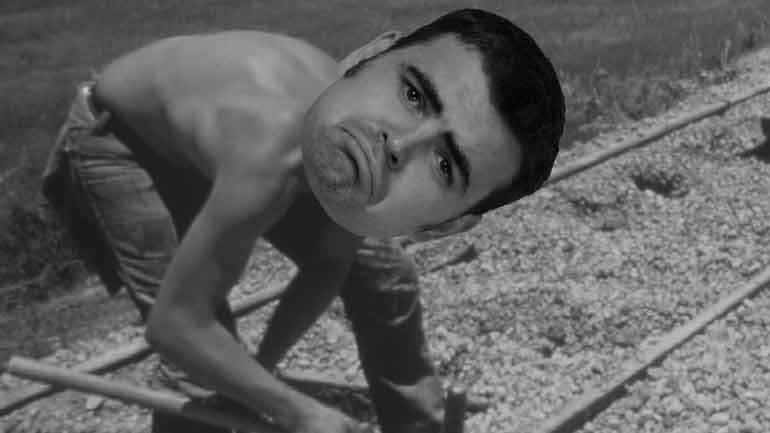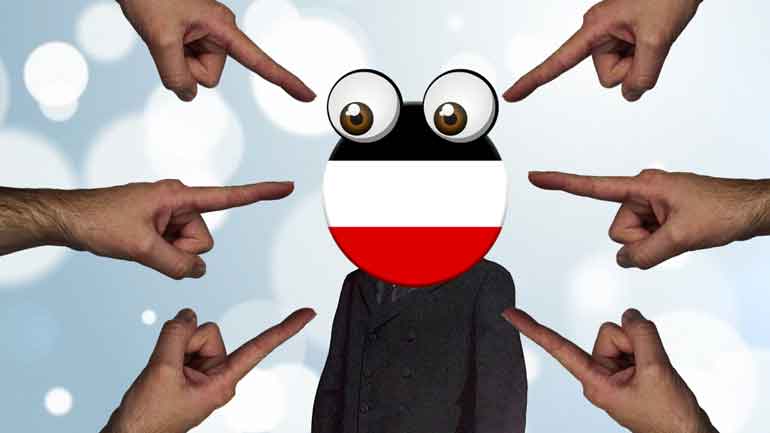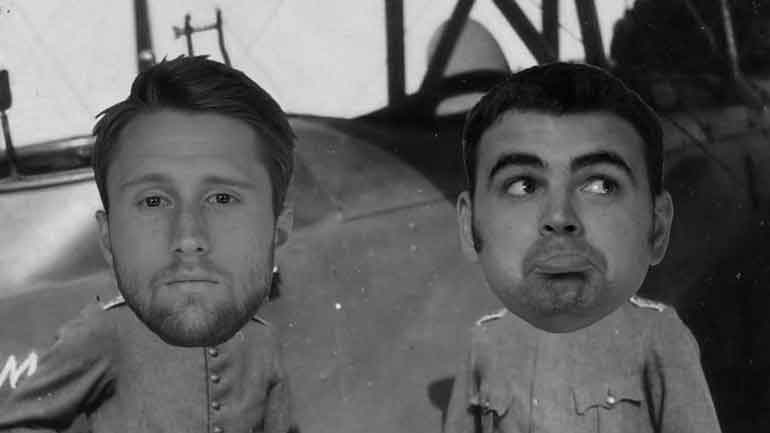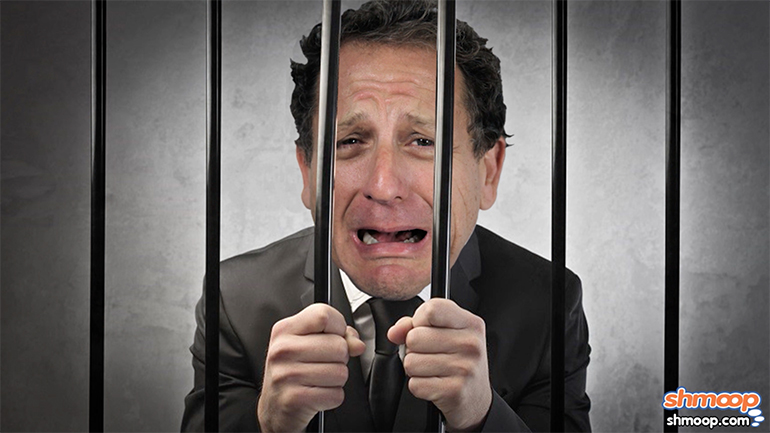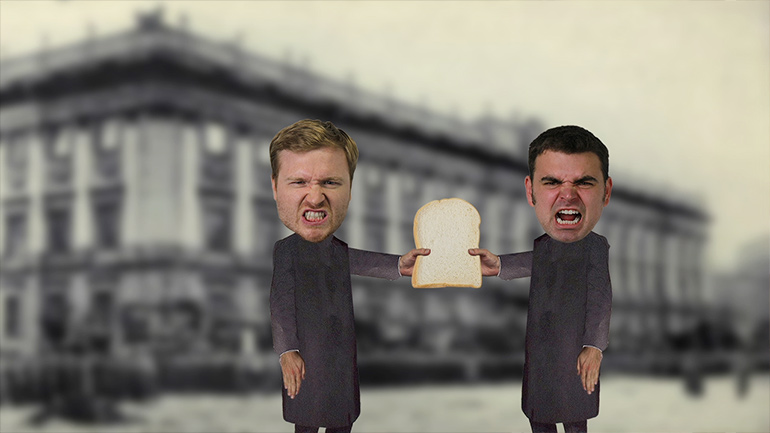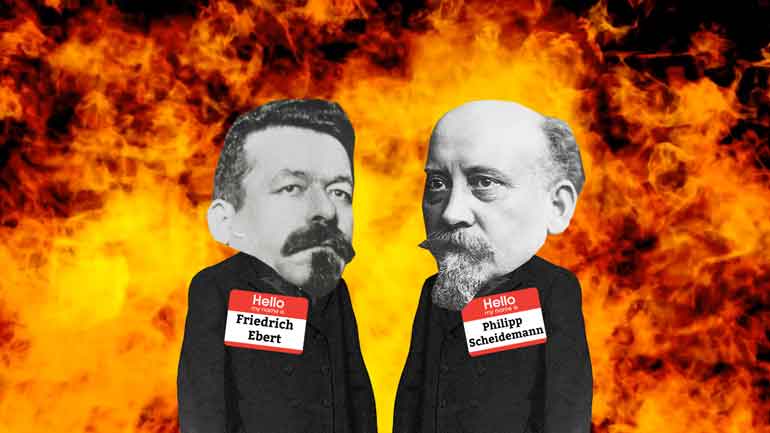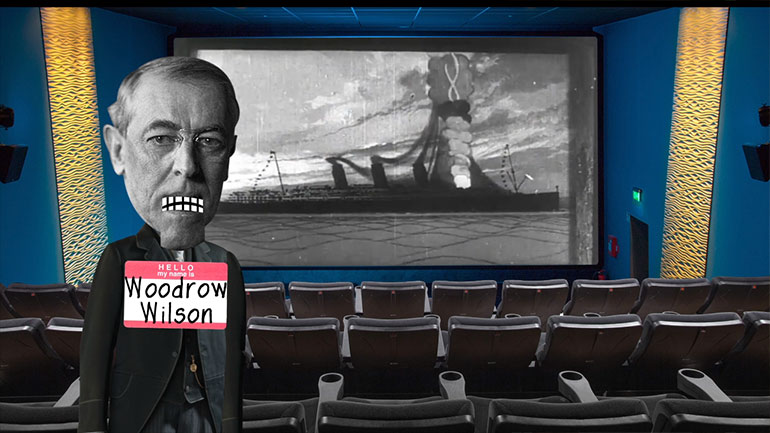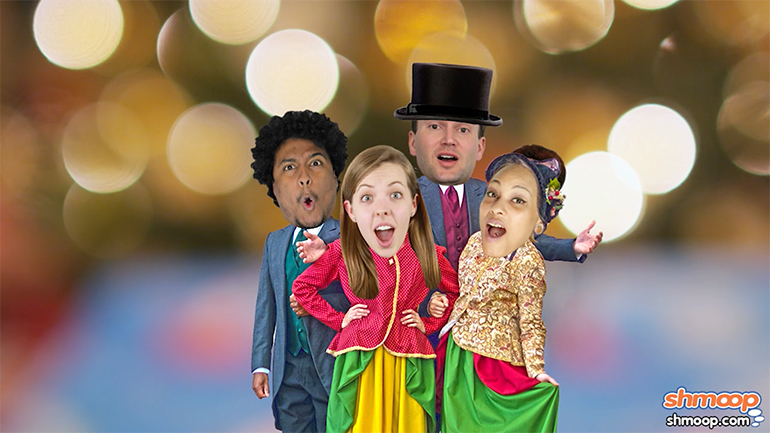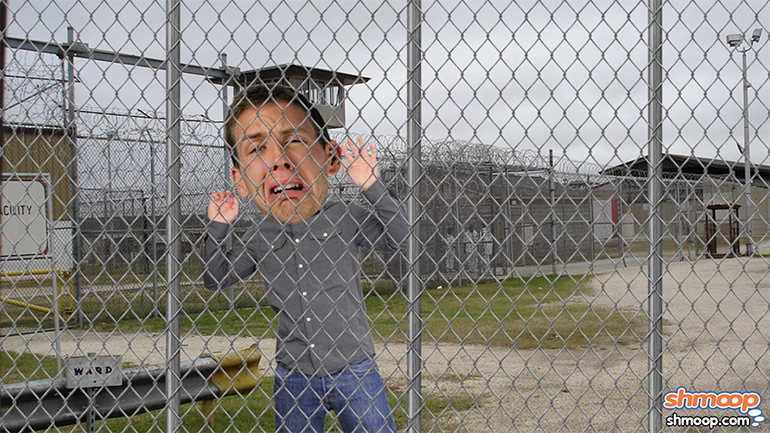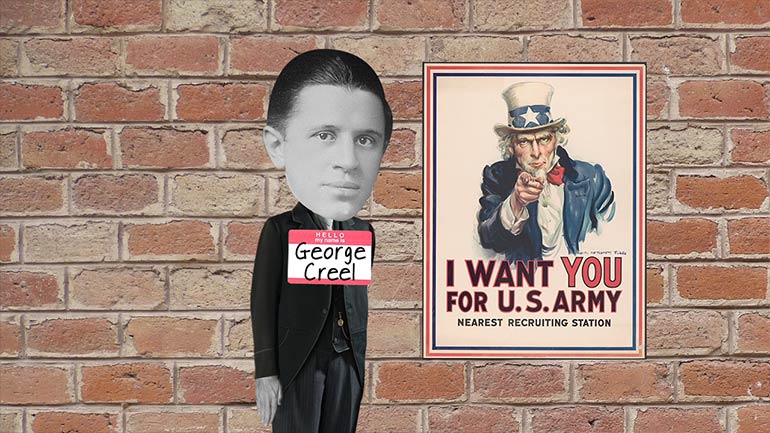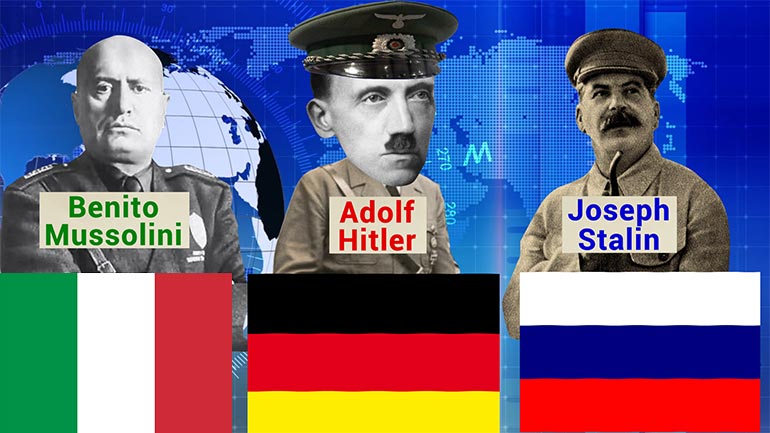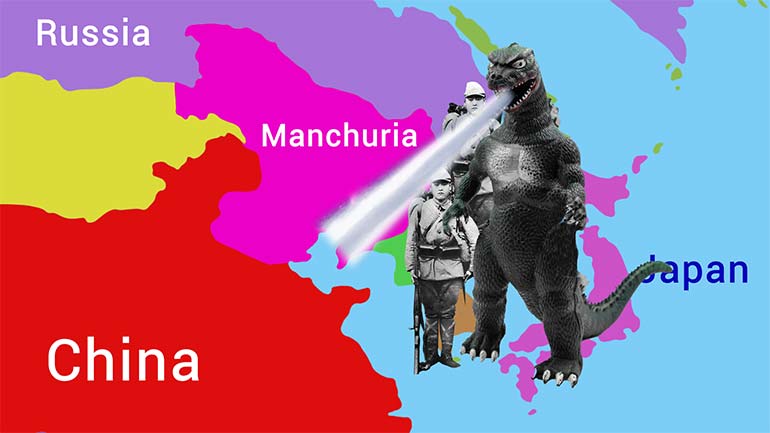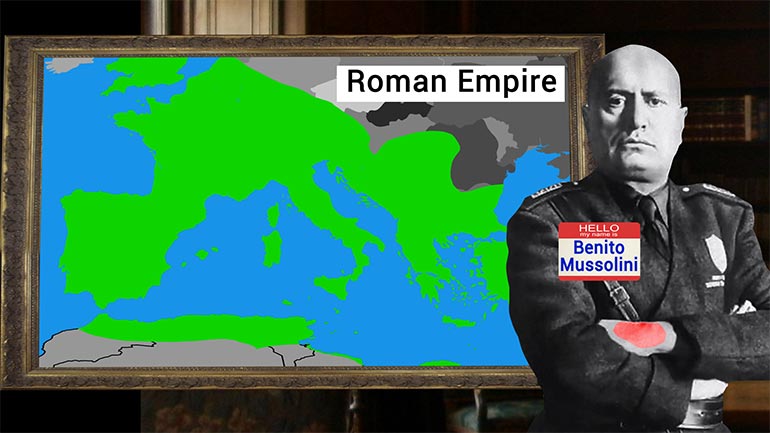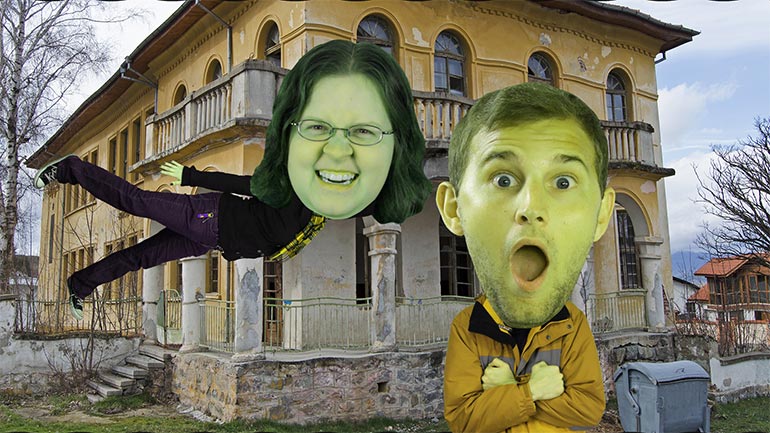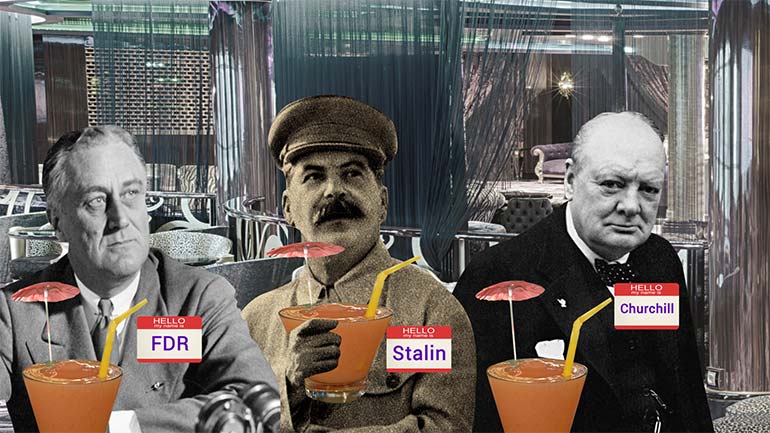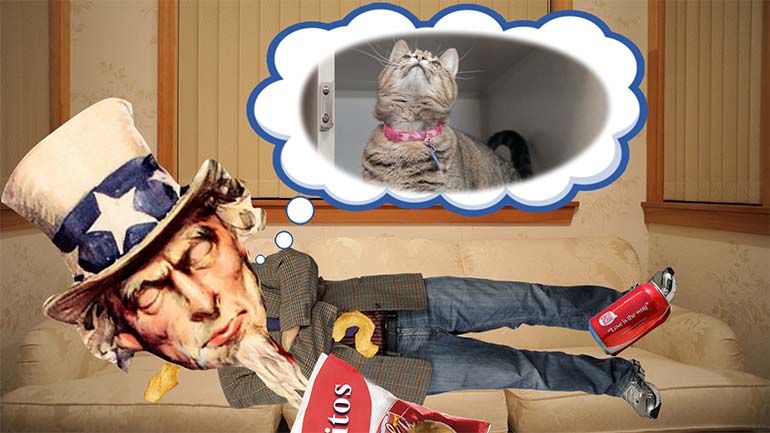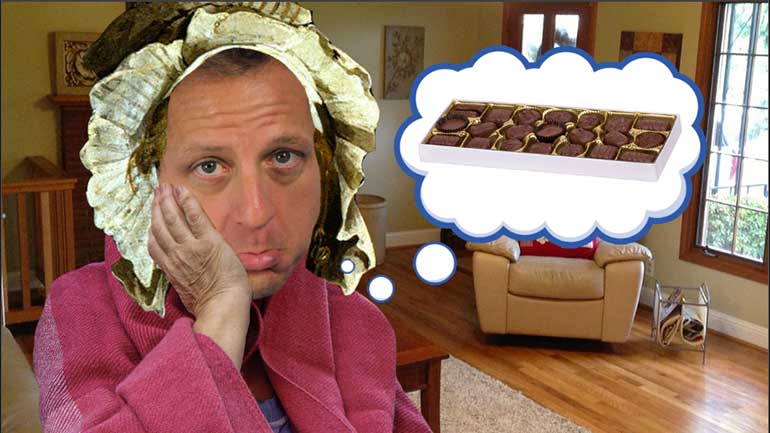ShmoopTube
Where Monty Python meets your 10th grade teacher.
Search Thousands of Shmoop Videos
Modern World History Videos 86 videos
Today we're tackling unions, a.k.a. the people who brought you weekends, a.k.a. the greatest people who have ever existed. We'd send them a thank y...
Modern World History Course 2.4 English Democratic Traditions 43 Views
Share It!
Transcript
- 00:03
Ah, the Middle Ages... the time of wars, dirt, and no flushing [Man riding a horse]
- 00:08
toilets. Those were the good old days... for sowing seeds of modern democracy. Well,
- 00:14
let's get this party started with some feudalism. That's how parties usually [Man holding a glass of wine]
- 00:17
start, right? Well, in each town or village in western Europe, there was a lord who
- 00:21
was the local landowner and queen bee. You could say the lord was the Regina
Full Transcript
- 00:25
George of the village. Acreage equaled attitude in those days. Vassals were
- 00:30
lower in the social hierarchy. They depended on their lord to give them land, [Man working hard for a lord]
- 00:34
which they then farmed. Vassals returned a portion of what they earn from their
- 00:39
efforts back to the lord. So lords were the original Hollywood agents... gotta
- 00:44
love that ten percent. And to top it all off, when things got real, the vassals had
- 00:48
to serve in the lord's militia. We guess there were some perks. The vassals [Man dressed in armor holding a sword]
- 00:53
got protection from their lord, as well as certain guaranteed rights and lessons
- 00:56
in conflict resolution. Well, this system worked pretty well for a long time.
- 01:00
Nobody had too much of anything, and the lords and vassals had a touching [Lord and Vassal at a table eating and drinking wine]
- 01:04
relationship that benefited all. I love you, you love me... you know the drill.
- 01:08
Eventually, however, things got complicated. Don't they always? Well,
- 01:13
groups of lords banded together and picked one queen bee to rule them all.[Lords together deciding one ruler]
- 01:16
The queen bee became the king bee, and wouldn't you know it, all the plebs in
- 01:20
Europe were happy to keep pledging their loyalty to the lord of the lords, so long as
- 01:25
he kept them safe. Lesser lords were also cool with this situation, so long as the [King stood at the top of a castle tower]
- 01:30
king didn't make them mad. Looks like we figured out where Tina Fey got the
- 01:34
inspiration for Mean Girls. But, as we all know, it only takes one bad apple to
- 01:39
screw things up for everybody else... a bad seed, a bad egg--basically someone yucky. [A lord eating a bad apple]
- 01:44
Enter King John, the big yuck-o who ruled England for about 15 years at the
- 01:49
beginning of the 13th century. Well, King John's political smarts were less than [King John with a priest]
- 01:53
stellar. First, he got into it with the Catholic Church, and then he raised taxes
- 01:58
after losing a battle in France. Nobody likes a loser, and that included the
- 02:02
nobility of England, who decided it was time to limit the King's power with a [A giant boulder almost hits King John]
- 02:06
little document we like to call the Magna Carta. It looked like this... just
- 02:11
kidding, it was one of these boring guys. Can't blame us for trying
- 02:14
to liven up history though, right? We here in the US of A abide by a system called [The congress building]
- 02:18
civil law. We have a constitution--actually, a lot of constitutions--from
- 02:22
which all things legal flow. Well, British common law, which got its start with the
- 02:26
Magna Carta, is different. Instead of basing everything on written laws only, [Pen scribbles out the word only]
- 02:31
the Brits also rely on something called precedent. No, not president. They've got a
- 02:36
prime minister, but that's not the point. Precedent means that a judge decided [A judge using a gavel]
- 02:40
something like a million years ago, and yeah, it seemed to work then, so that same
- 02:45
decision gets applied to the same situation over and over and over and
- 02:48
over again today. Because if history doesn't repeat itself enough on its own,
- 02:51
well, we may as well help it along. Well, as the centuries passed, the group of lords [Man in court with a judge]
- 02:55
determined to keep a check on the king stayed a group of lords determined to
- 02:59
keep a check on the king, only they changed their name to "Parliament." During
- 03:04
the fourteenth and fifteenth centuries, Parliament operated independently of the
- 03:08
king and took on more and more of the work of governing England. Well,
- 03:11
Parliament also incorporated representatives from different social
- 03:15
classes in different areas of the country into itself. It did pretty well
- 03:19
despite having such a silly name. You couldn't have just gone with something
- 03:22
simple like, we don't know, Trevor? So checks on the executive, government that [Person scribbles out Parliament and writes Trevor]
- 03:27
benefits and is representative of everyone, a hatred of taxes? You know, the
- 03:31
English government of the Middle Ages had it all, and today so does our
- 03:34
democracy. But you know what? We've got the Statue of Liberty and all Britain
- 03:38
has is a really fat dude named Ben. That's not right, is it? [A man called Ben stood by the Big Ben Clocktower]
Related Videos
GED Social Studies 1.1 Civics and Government
When you're about to marry the love of your life, not many things could stop you. However, finding out that your future hubby is keeping his crazy...
Here at Shmoop, we work for kids, not just the bottom line. Founded by David Siminoff and his wife Ellen Siminoff, Shmoop was originally conceived...
ACT Math: Elementary Algebra Drill 4, Problem 5. What is the solution to the problem shown?
